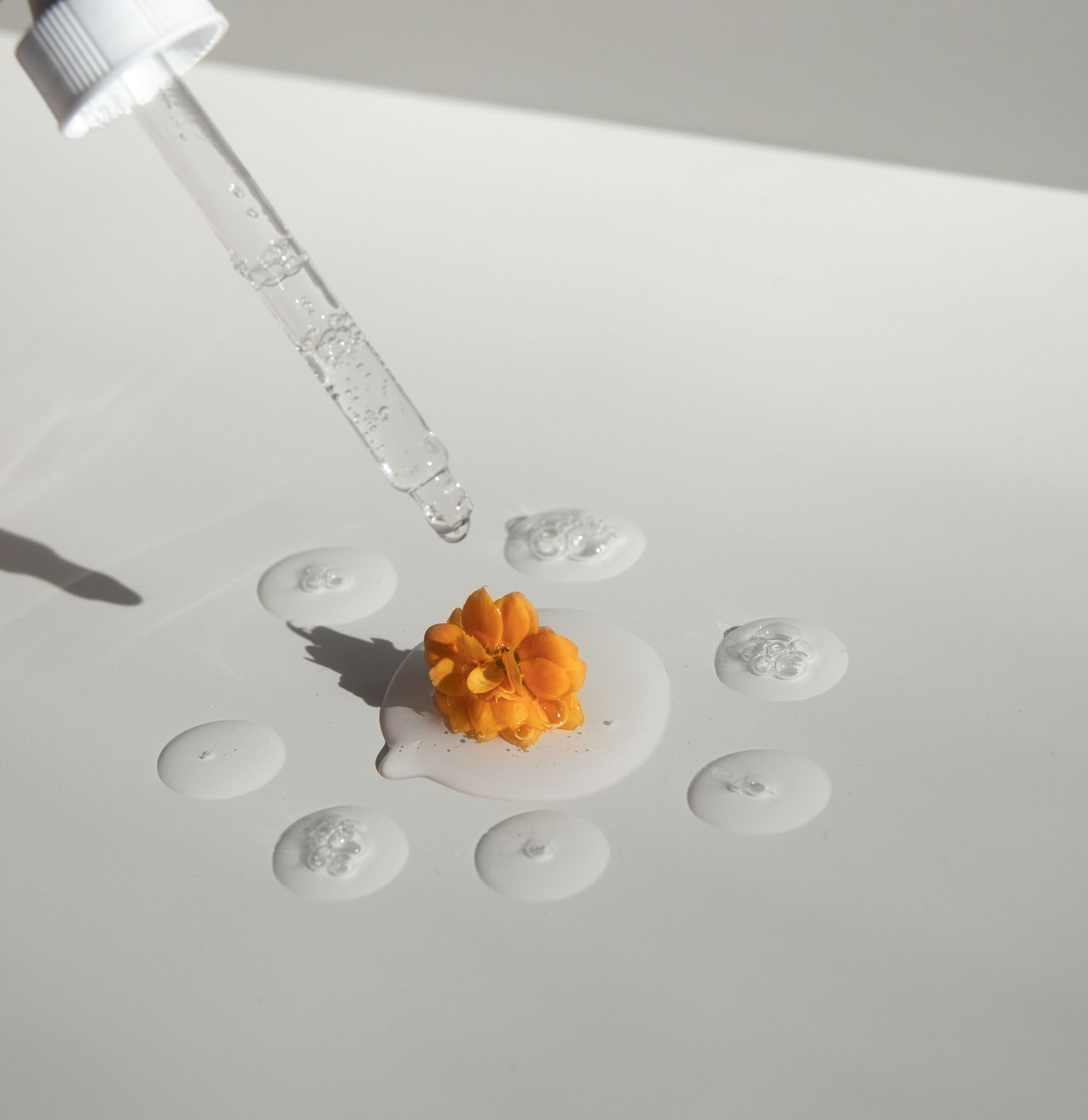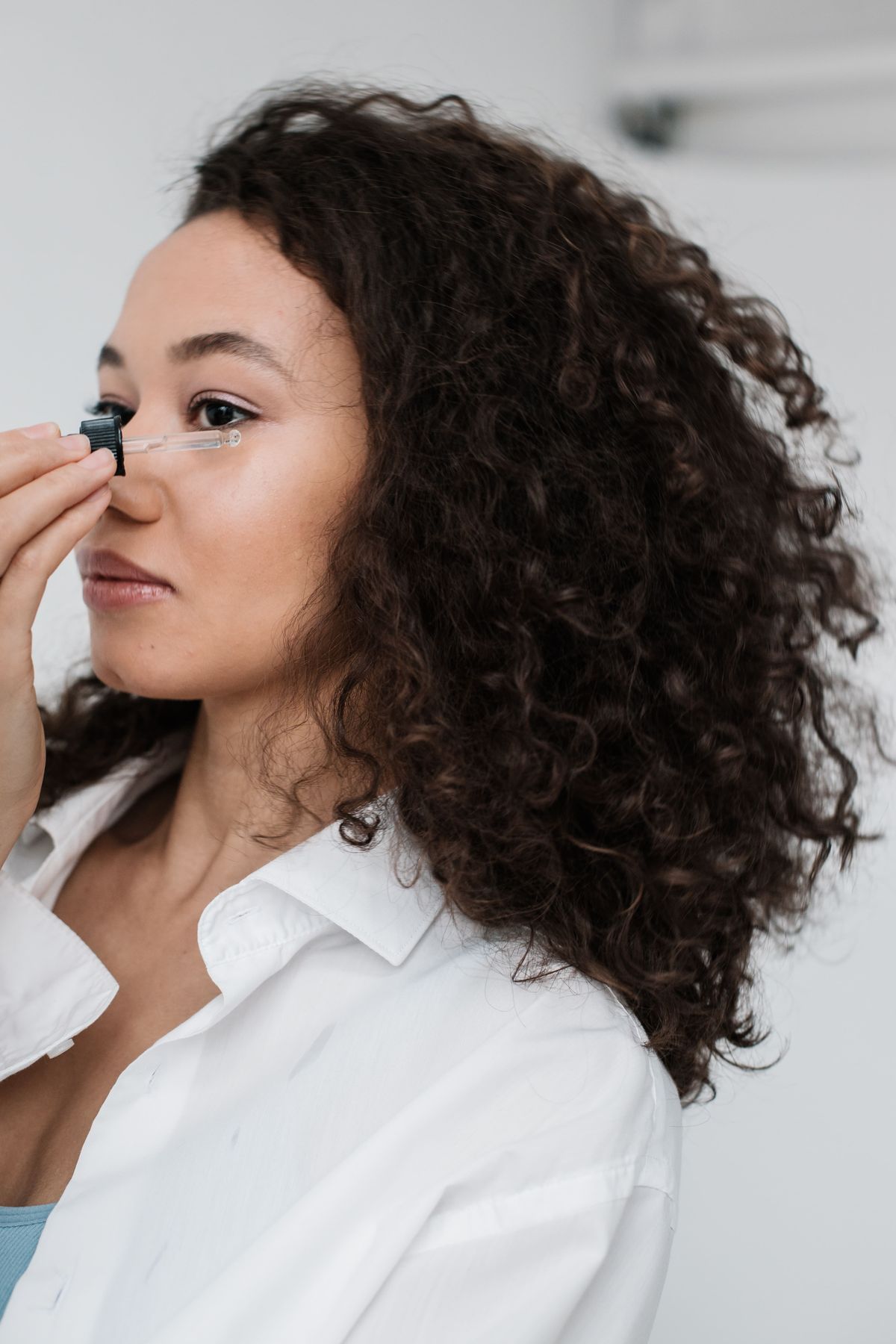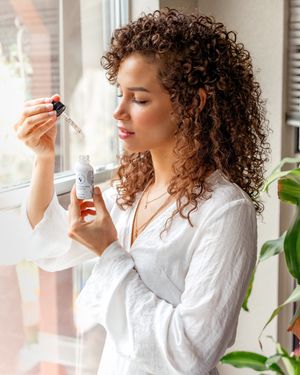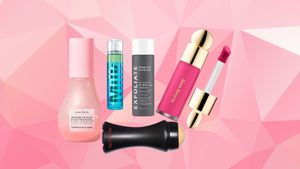Vitamin E is a vitamin that has been used for decades now in skincare products. This vitamin, also known as tocopherol, is found naturally in many foods but can also be synthesized and added to skincare products. It’s important to note that vitamin E supplements are not the same as vitamin E for skin - it needs to be properly formulated into a topical product before it will have any benefit on your skin. In this guide we will discuss the benefits of vitamin E in skin health and offer some suggestions based on what you want from your vitamin E product!
Vitamin E for skincare has lots of benefits for the skin and is one of the most common skincare ingredients around. Our body produces it naturally, and it’s found in lots of different foods too. You can even take it as a supplement to give your body and skin a boost if you’re low on vitamin E. If you’re looking to buy vitamin E for skin, it needs to be formulated into a topical vitamin product.
Vitamin e benefits in skincare
As vitamin E is great for the skin and body, there are lots of vitamin E benefits in skincare that you can benefit from!
Vitamin E protects against free radicals
These are molecules with an odd number of electrons which makes them unstable, so they ‘steal’ extra electrons from anything they come into contact with. This means they will damage your cells as well as other molecules including those found in suncreams! These harmful rays actually cause most wrinkles as we age because of all this cell damage so stopping free radicals using vitamin E is really important if you want to keep your skin looking young.
Vitamin E is also an antioxidant
Vitamin E is an antioxidant that helps to protect the skin from these free radicals by ‘stealing’ their extra electrons, stopping them doing any damage. It also reduces inflammation in the body so can help with redness and other signs of irritation too. Topical vitamin E for skincare will be able to do all this because vitamin E is an antioxidant that helps break down harmful elements into harmless compounds before they have a chance to damage your cells!
Vitamin E moisturizes dry skin
Dry skin occurs when there aren’t enough lipids (oils) protecting your skin cells barrier which makes it more sensitive as well as flaky and rough looking. This moisture barrier protects our bodies against bacteria, viruses and other infections while keeping everything inside where it should be. It’s made from over 50% ceramides, cholesterol and fatty acids which vitamin E can help with.
Vitamin E absorbs quickly into the skin
This means that vitamin e oil is a great ingredient for oily or acne-prone types of skin because it won’t irritate like other oils might!
-As well as protecting against free radicals, vitamin e can also help vitamin C to be more effective.
- If you suffer from spots or blemishes, it can also help reduce redness and inflammation as well as swelling which means your skin will recover much faster! Using vitamin e for skincare benefits both the health of your skin and how it looks too .
- Finally, vitamin e reduces water loss through the skin making sure that what you put on top stays there rather than evaporating into thin air before reaching your cells. This makes vitamin E really useful if you want your moisturizer or serum to work harder at keeping moisture locked in and your skin hydrated.

What is vitamin E?
Natural vitamin E is the name given to a family of antioxidants, all of which are fat soluble. There are a number of different types. The two most common vitamin E for skincare types are tocopherol and tocopheryl acetate; you’ll find these in lots of different products and vitamin E supplements. The latter is a synthetic version of the former.
Tocopherol is the most common and is the only vitamin E for skincare that’s recognized as meeting the requirements for human use by the National Institutes of Health (NIH). Hopefully, this helps you to decode the inky list when you’re checking out your favorite products.
For skincare, it’s usually available as a cream or oil, and is used in lots of cosmetic products – such as anti-aging creams, sunscreens, makeup, and serums. You can get it as a supplement in capsule form, which can be broken open and used directly on dry skin areas. Because vitamin E is oil-soluble, incorporating it into your skin-care routine through oils and moisturizers makes sense.
One thing to be aware of is that some cosmetic or skincare formulations may not contain the right concentration of vitamin E to make a difference to your skin amongst the other ingredients it contains.
What are the benefits of vitamin E for skincare?
One of the great things about vitamin E is how easily it is absorbed into the skin but is also less likely to dissipate in UV light. Vitamin E has a range of skincare benefits, including:
- Promotes skin repair, healthy skin, and cellular restoration – particularly goof to support the healing of scars, sun damage and burns
- Helping with a range of skin disorders like psoriasis, eczema, itchy skin, and dry hands
- Preventing the appearance of fine lines and wrinkles
- Moisturizing dry, patchy areas of the skin (like cuticles and elbows)
- Can have benefits for scalp health too, which equals healthier hair
- Helping skin tone to look more even
As an antioxidant, vitamin E fights free radicals that come from daily living – think sun exposure and air pollution – and helps to protect the skin from damage. It’s also a natural anti-inflammatory that can help to soothe and calm skin.
Although it’s not necessarily just skincare-related either, the body also needs vitamin E to help keep the immune system strong against viruses and bacteria as well as being important in the formation of red blood cells and helps the body use vitamin K. It also helps widen blood vessels and keep blood from clotting inside them. This can be really good for helping wounds to heal.
Who should skip vitamin E for skincare?
People with very sensitive, very oily, or acne prone skin should skip vitamin E. As with pretty much everything, vitamin E can act as an allergen to some people and cause irritation, itching or rashes. Less than 1% of people actually experience this topical sensitivity to vitamin E, and as many people see skincare benefits from it, it isn’t generalized as an allergen.
If you're new to using vitamin E oil, or your skin is on the sensitive side, try it out in a moisturizer first as serums can use stronger concentrations.
How to incorporate vitamin E into your skincare routine
With all of this in mind, you might be tempted to choose a product that contains pure vitamin E oil, right? It might not be the best idea – it’s sticky and has a slightly odd odor, both of which are the reasons why you’ll often see it mixed with coconut oil.
Oils, products, and synthetic vitamin dietary supplements that contain naturally high levels of vitamin E are the way to go to incorporate it into your routine for skin health. Like with all things skincare, the keys to success are baby steps and prevention. Start by introducing a small amount of topical vitamin E with just one product, and build it up as your skin tolerates it. If you're extra sensitive or just not sure about whether vitamin E supplements or skin care are right for you, talk to your doctor or dermatologist. They can help you pin down the cause of whatever's stressing out your skin and find the right products to treat it.
It works really well when partnered with vitamin C, and you’ll often find them together in products. When combined, they can improve the appearance of uneven skin tone, brighten a dull complexion, and strengthen skin defenses against the impact of environmental assault. These antioxidants play well together because vitamin C works optimally on the surface level, whereas vitamin E is oil-soluble so it goes deeper—you get the best of both worlds.
One of the best ways to benefit your skin is through a healthy diet (coupled with a healthy lifestyle and a great skincare routine of course), here are some of the best foods to eat if you want to get your vitamin C fix starting within:
- Vegetable oils (such as wheat germ, sunflower, safflower, corn, and soybean oils)
- Nuts (such as almonds, peanuts, and hazelnuts/filberts)
- Seeds (such as sunflower seeds)
- Green leafy vegetables (such as spinach and broccoli)
- Fortified breakfast cereals, fruit juices, margarine, and spreads.
- Fortified means that vitamins have been added to the food. Check the Nutrition Fact Panel on the food label.
- Products made from these types of foods, such as margarine, also contain vitamin E.
Vitamin E supplementation can be a great addition to your skincare routine (as well as your diet) and comes with a variety of skincare benefits, so it’s definitely worth trying it out to see if it works for you. The fact it can benefit your scalp and hair as well as you skin is a great benefit. Just look for the key ingredients - tocopherol and tocopheryl acetate – and try out vitamin E for skincare.
FAQ
Does vitamin e help with scars?
Products that contain vitamin E are great for treating scars, but vitamin E itself does not have scar-treating properties.
What is vitamin E?
Natural vitamin E refers to a family of eight related compounds called ‘tocopherols’ and ‘tocotrienols’ which work together in the body to provide antioxidant benefits.
How vitamin e helps with hair?
Vitamin E is a great ingredient to look out for if you want healthy hair, as well as smooth and shiny skin (it has some skincare benefits too). It’s quite common in shampoos and conditioners.
How does vitamin E help the skin?
Vitamin E helps the skin by protecting it from harmful UV rays, pollution and free radicals. It also keeps your pores clear which prevents blemishes.
What vitamin e is good for?
Products that contain vitamin E are great at targeting a variety of skincare benefits including pigmentation issues, uneven skin tone, brightening dullness, and protecting against environmental damage.
Does vitamin E remove dark spots?
Yes, vitamin E does help remove dark spots.





